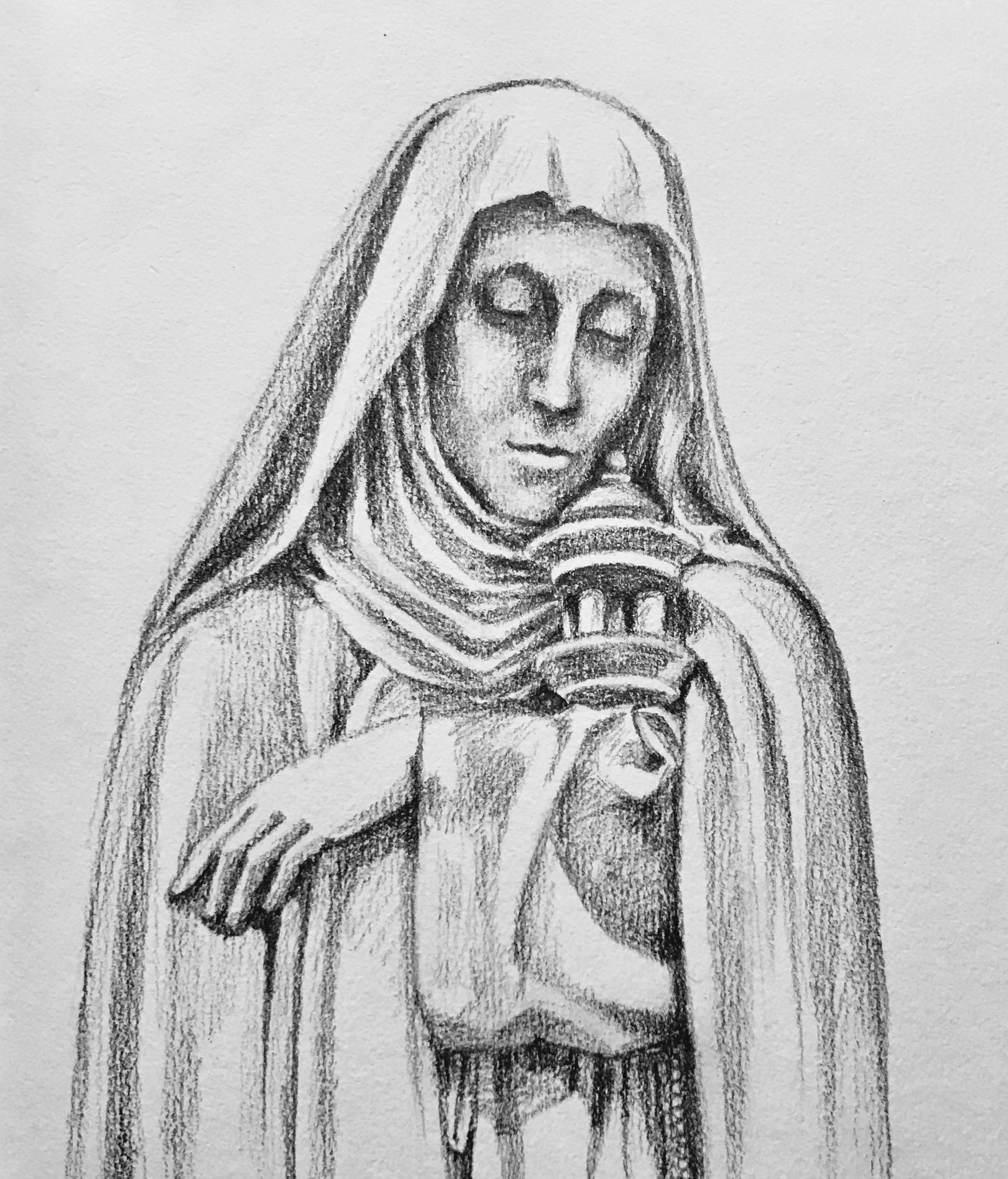
Saint Clare is this lesser known companion of Saint Francis whose life in some ways surpasses that Seraphic Doctor. Saint Francis’ life was love turned outward towards the world through the blessed prism of Lady Poverty. Saint Clare’s life was the intimate love of the soul alone with its God lived out in a cloistered community of like-minded consecrated women. Love, by the action of grace, is stretched beyond its human limits both outwardly and inwardly. And love, if it remains poor without claiming any dues, can be fully transformed by the divine motion of the Holy Spirit. Saints Francis and Clare were driven to choose lives of radical poverty because the taste of divine love reshaped their entire understanding of what they needed in this world. They came to understand poverty as the way in which their hearts could drink deeply from the fountain of Love. “Blessed are the poor, for theirs is the Kingdom of Heaven.”

